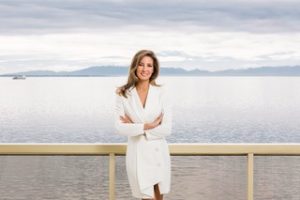Since 2020, the coronavirus pandemic has swept across the world bringing immeasurable loss and suffering. Last year was a challenging year for everyone around the world. But in Greece, there have been moments in our mediation practice when we felt most hopeful. For most mediators in Greece, and elsewhere no doubt, we developed a heightened awareness of our interconnectedness. The pandemic changed our practices in ways we could not have foreseen just a few years ago.
The pandemic made us fully embrace video conferencing technology and online dispute resolution (“ODR”). With the aid of technology, we can empower parties to have their voices heard, leading the way for collaborative, mediated resolutions to difficult problems. We use ODR for the entire spectrum of disputes – from interpersonal disputes to workplace conflict, analyzing problems, and promoting communication between parties. We realize that we need to be comfortable not only with technology that we know but also with technology that we don’t know.
Mediation has become more acceptable in Greece, thanks to the law on mandatory initial mediations in family and civil disputes, including those arising from contracts that contain a valid mediation clause. More and more people are learning that in mediation, maybe no one “wins” in terms of the outcome, but everyone wins in terms of the process. This has given us the strength to persevere in our tireless endeavor to serve people in conflict.
By way of background, I am the Director and founder of the European Institute for Conflict Resolution (“EICR”), a non-profit organization that is registered with the European ODR Platform and has the approval of the Greek National Authority. I am also a member of the Investment Services Panel for the Hellenic Ombudsman for Banking. In these capacities, I am constantly mediating a wide variety of international, Pan-European disputes, as well as facilitating state and investment disputes for the Organisation for Economic Co-operation and Development in Washington D.C. In addition to conflict resolution, the EICR promotes and strengthens mediation with training support, and mentoring more than 2,000 lawyers, judges, law students, and children. In 2018, we created the first app in Europe for conflict resolution and mediation where users can find useful information about mediation and conflict resolution and submit complaints concerning consumer disputes.
My goal and vision are to empower students, professionals, and children in particular through peer mediation programs at schools. I believe in the importance of finding ways to educate children so they grow up learning not to lash out at the first sign of conflict, but to approach problems more reasonably. Genuine peace and reconciliation, whether in relation to ourselves or to others, come by responding to life’s challenges with understanding, empathy, respect, and nonviolence.
Obviously, dispute resolution has evolved since the Classical period in ancient Greece and it continues to adapt and refine itself to better serve today’s disputants. Basic human needs for peace, security, and autonomy may remain the same, but solutions and answers might differ for subsequent generations. As we move into 2022, we believe mediation will be embraced and established by citizens in Greece, Europe, and throughout the world as a valuable form of procedural justice.

